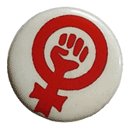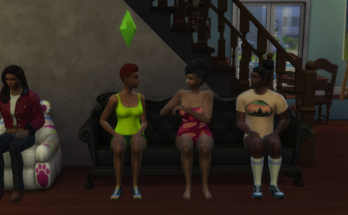In completing my online ethnography of the Okayplayer message boards I sought to answer two research questions which came from my earlier interaction with users on the site: Why do you (the OKP user) feel feminist users have shifted towards Twitter in search of a receptive and safe space? Additionally, do you feel structural changes to the OKP boards could bring them back?
My work on the site was complicated, following the activity of my earlier post, by my ‘throwaway’ account’s deletion and account suspension. I received no email informing me of a moderation decision or notification of any violation of the site’s rules based on the content of my post, and can only assume that the post was either reported by another user or removed because I had disclosed that my poll was a component of a larger academic review of the site. In continuing my work I was required to use my personal account, which I primarily use to browse for music news and is not regularly used to participate in discussion, to probe at the margins of my research questions without revealing my motivations or findings.
In attempting to answer my questions I spent hours on the OKP boards, which are broken down into ‘OKP News Discussion’, ‘the lesson: In-depth music discussion’, ‘general discussion’, ‘Okay sports’, organix: life, style, art, food, health, travel’, ‘pass the popcorn’ (reviews), ‘make the music’ (music production), and ‘high tech’ (tech topics). I mainly spent time in the general discussion forum, which is both the most active and has the widest range of discussion topics. In participating under my personal account I attempting to engage users in conversation around social or political topics in which feminist perspectives are at the forefront, mostly the policy positions of prospective or actively campaigning candidates for the Democratic presidential nomination, a thread about overlooked news stories, multiple threads discussing various personal relationship situations of various users, some scattered music threads, and some other miscellaneous threads.
The consensus from users still active on the site seems to be that the boards started as a diverse group of alternative music and hip-hop fans who wanted to interact with fans outside of the filter of the music industry and the same recycled industry talking points, while engaging in conversation on political and social topics. Throughout the early 2000s the boards featured a range of feminist perspectives and vocal users; however the rise of twitter and instagram in the early 2010s drained many of these users. The users that remain are predominantly straight and cis male, and that instances of overt misogyny and bigotry go frequently unchecked within the comment threads. Multiple users who identified themselves as feminists of color overtly stated that the OKP boards are not a safe space, that the claims of feminist ‘lurking’ ring true in their opinion, and that trolls are just as prevalent on the OKP boards as elsewhere on the internet.
Users feel that there is little potential for change within the OKP boards, and that the structure of the boards themselves makes such a change impossible. This seems to be true especially on the OKP boards but also in traditional message boards more generally. As posts are linked by subtopic and responses are listed chronologically, there is very little back and forth conversation and more sweeping generalization than is found on more immediate platforms like twitter. This difference in velocity seems to impact bot the content and tone of messages, as users are relatively confident that their view will go unchallenged or will simply be brushed off. Additionally, there is no voting mechanism for replies and threads like the upvote/downvote structure on Reddit. As such, there is no means for disapproving of a post without replying to it directly, meaning that the only means for countering racism, misogyny, or trolling is through direct address which can be uncomfortable or counterproductive. It was also indicated to me by multiple users that, like me, found some of the moderation policies to be opaque and arbitrary. Lastly, the same 10-15 accounts are frequently found in most, if not all threads, drowning out voices with less activity and post frequency, both of which are indicated under user account names in the forum. This seems to establish unwritten rules of authority which ranked some voices over others with less history of participation.
To conclude, while there is a large, progressive population of OKP users who are receptive to feminists of color, the site at large, through its structure, moderation, and a few trolling users, is unsafe for feminists of color. While the okayplayer site succeeds in its aim to elevate the music blog beyond a digital industry billboard, it fails as an inclusive space for feminists of color.

